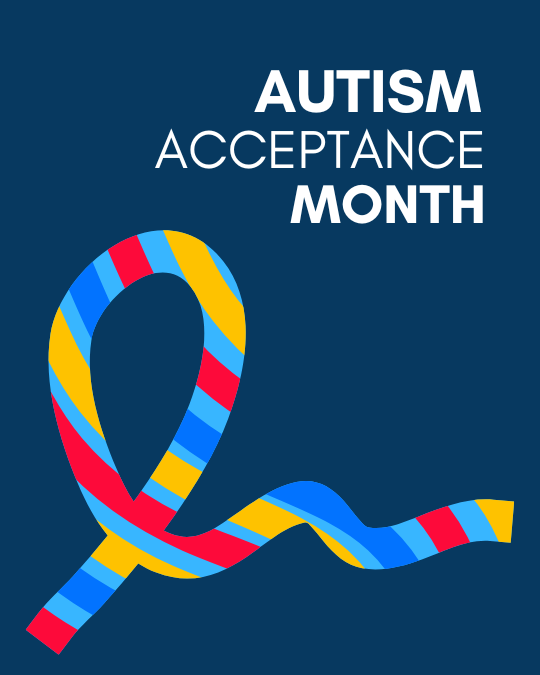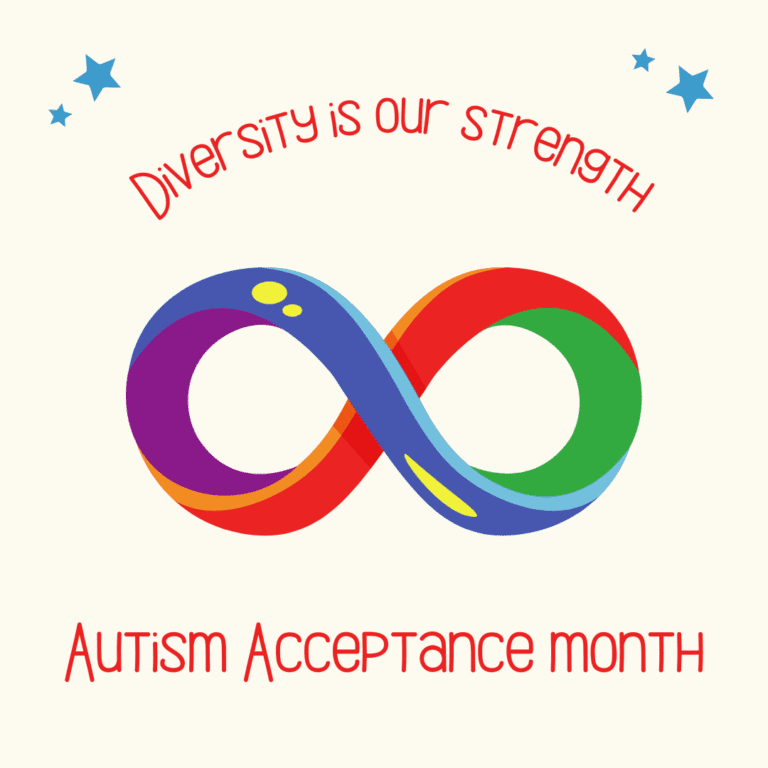Autism spectrum disorder (ASD) is a developmental disability caused by differences in the brainthat affects social communication, behavior, and sensory processing. 1 in 36 children is diagnosed in the United States yearly. Despite the high prevalence of autism, there is still a lot of misinformation and stigma surrounding it. Autism Acceptance is a movement that aims to change that.
What is Autism Acceptance?
Autism acceptance is the idea that autism is a natural and valid variation of the human experience and that autistic individuals should be accepted rather than cured or normalized. It emphasizes the importance of listening to the voices and experiences of autistic people themselves and respecting their autonomy and agency.
Autism acceptance is different from autism awareness. Awareness, though important, is more focused on educating people about the existence and symptoms of autism and can perpetuate a deficit-based view of autism. In contrast, acceptance celebrates the diversity and strengths of autistic individuals and recognizes that they have unique perspectives and contributions to offer to society.
Why is Autism Acceptance Important?
Autistic individuals face many challenges in a world often not designed with their needs in mind. They may struggle with sensory overload, social isolation, and pressure to conform to neurotypical (non-autistic) standards of behavior and communication.
Autism acceptance can help to address these challenges by promoting a more inclusive and accommodating society. By accepting autistic individuals for who they are, we can create environments that are more accessible, respectful, and supportive.
Autism acceptance also challenges the medical model of autism, which treats autism as a disease or disorder that needs to be cured or fixed, which can lead to harmful and unnecessary interventions prescribed to make autistic individuals more “normal.” By embracing autism acceptance, we can move away from this deficit-based approach and towards a more holistic and person-centered view of autism.
How Can We Practice Autism Acceptance?
Autism acceptance is a practice we can all engage in daily. Here are some ways that you can support autism acceptance:
- Listen to the voices of autistic individuals: Find blogs, social media accounts, and other resources created by autistic individuals. Learn from their perspectives and experiences.
- Challenge stereotypes and misinformation: Educate yourself and others about the diversity and strengths of autistic individuals. Speak out against harmful and stigmatizing portrayals of autism in the media.
- Advocate for inclusive policies and practices: Support organizations and initiatives that promote accessibility, accommodation, and acceptance for autistic individuals. Encourage your workplace, school, and community to prioritize the needs of autistic individuals.
- Respect autonomy and agency: Recognize that autistic individuals have the right to make decisions and communicate in their way. Avoid imposing neurotypical standards of behavior and communication on autistic individuals.



